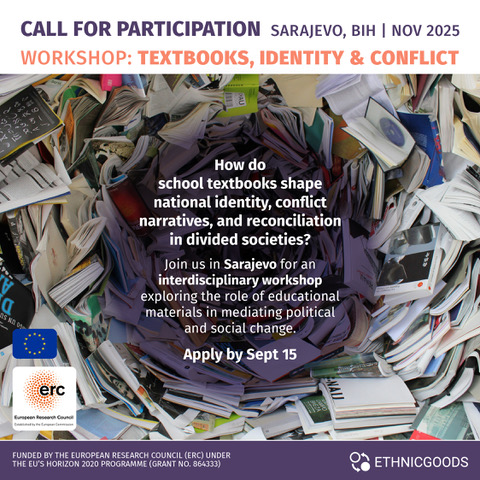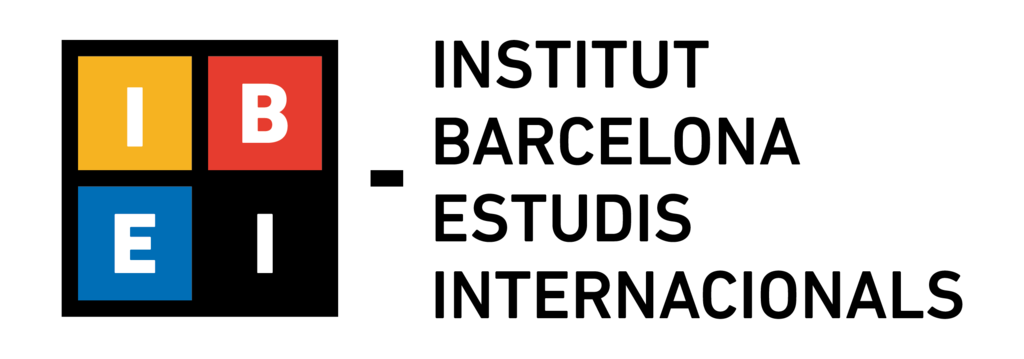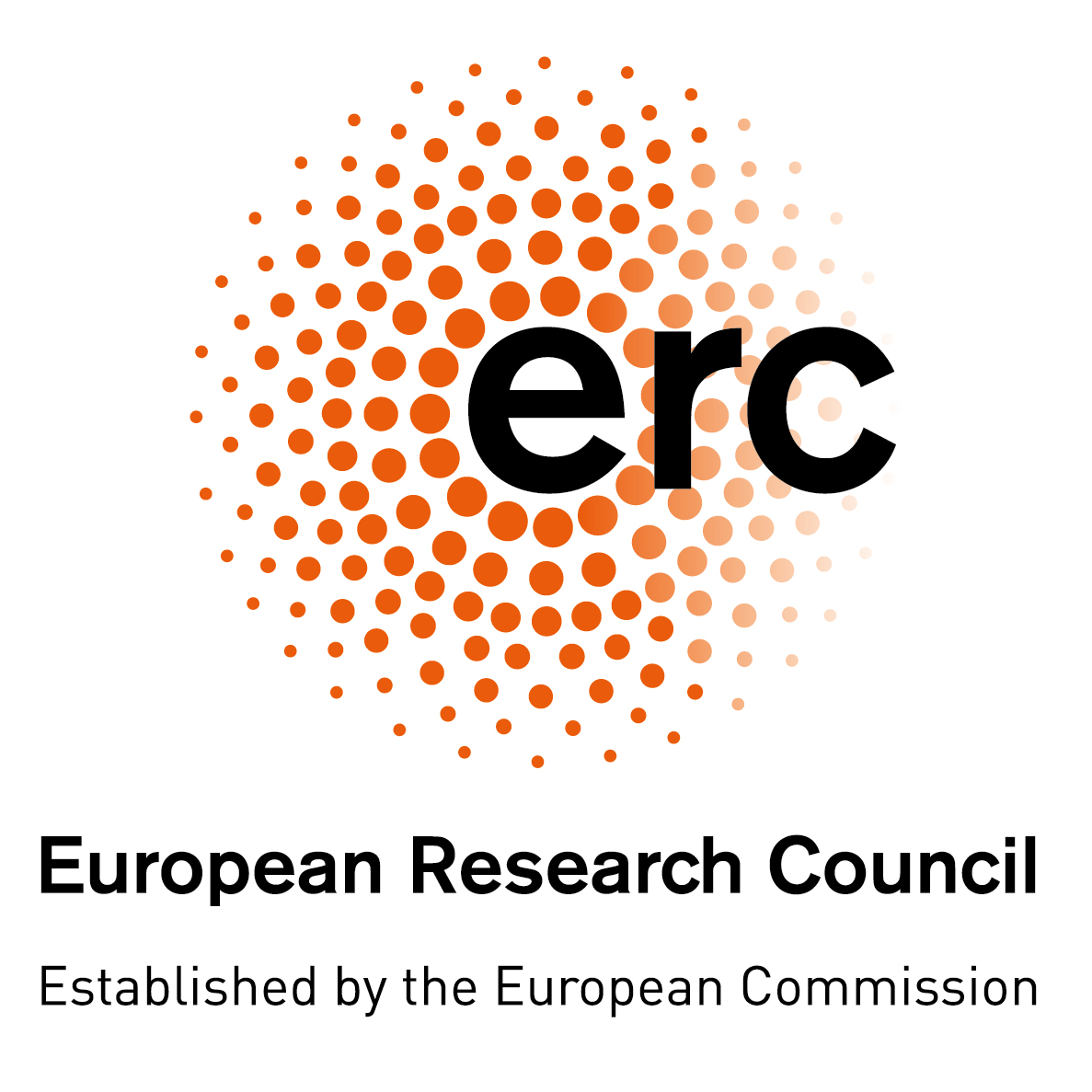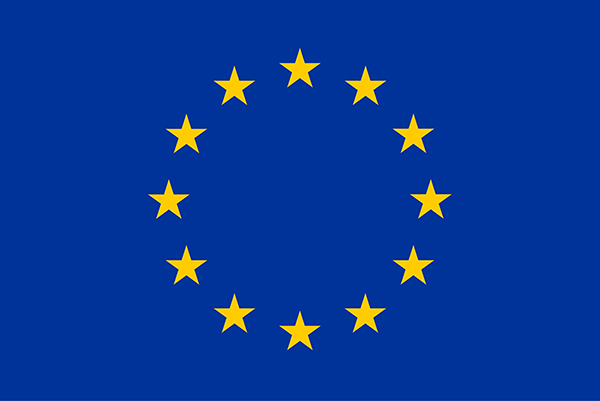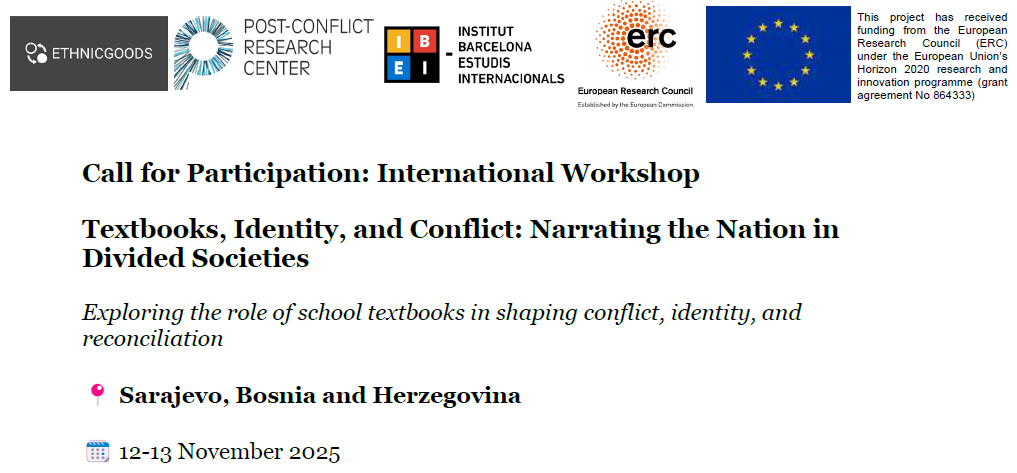
 Sarajevo, BIH |
Sarajevo, BIH |  12-13 Nov 2025
12-13 Nov 2025Please see the poster with full information here.
Call for Participation: International Workshop
Textbooks, Identity, and Conflict: Narrating the Nation in Divided Societies
Exploring the role of school textbooks in shaping conflict, identity, and reconciliation
 Sarajevo, Bosnia and Herzegovina
Sarajevo, Bosnia and Herzegovina
 12-13 November 2025
12-13 November 2025
Hosts: ETHNICGOODS (a project of the Institut Barcelona d’Estudis Internacionals, IBEI) and the Post-Conflict Research Center (PCRC)
About the Workshop
School textbooks are powerful political tools. They shape how societies remember the past, imagine their future, and understand their place in the world. In divided or post-conflict societies, textbooks can serve as weapons of division or as bridges toward peace.
This interdisciplinary workshop invites scholars, practitioners, and policymakers to critically examine how school textbooks influence the formation of group identities, narratives of conflict, and prospects for reconciliation. By focusing on textbooks as both indicators of dominant political knowledge and instruments of peacebuilding or contestation, we aim to foster dialogue around the ways education mediates political and social change.
Set in Sarajevo, a city deeply marked by the legacies of war and peacebuilding, this event provides an ideal setting to discuss the role of textbooks in both reflecting and reshaping contested histories.
Key questions
- How do textbooks construct national identity and shape memory in conflict-affected societies?
- In what ways do textbook narratives legitimize or challenge political violence?
- What roles do international actors, NGOs, and local educators play in textbook reform?
- How do students, teachers, and communities receive and reinterpret textbook content?
- What lessons can be drawn from post-conflict textbook reforms in contexts such as Bosnia, Colombia, Israel/Palestine, Armenia/Azerbaijan, and South Africa?
Who should apply?
We welcome applications from a diverse range of academic disciplines (sociology, political science, history, anthropology, international relations, education, media and communication) and professional fields (NGOs, education policy, and peacebuilding organizations).
Application details
To apply, please send your application materials (see below) to ethnicgoods@ibei.org with “Sarajevo Workshop” in the subject line.
For academic participants (scholars, researchers, and PhD students), please include:
- Curriculum Vitae (CV)
- Paper abstract (250–300 words) outlining the research topic, approach, and relevance to the workshop themes
Selected participants will be asked to submit full papers before the workshop.
For NGO representatives and policymakers, please include:
- Cover Letter (max. 1 page) detailing relevant experience and interest in the workshop
⏰ Deadline for applications: September 15, 2025
Selection Criteria: Relevance, originality, and diversity of perspectives
Funding: This project has received funding from the European Research Council (ERC) under the European Union’s Horizon 2020 research and innovation programme (grant agreement No 864333).
Limited grants are available for travel and accommodation; self-funded participants are welcome.
Contact: ethnicgoods@ibei.org
